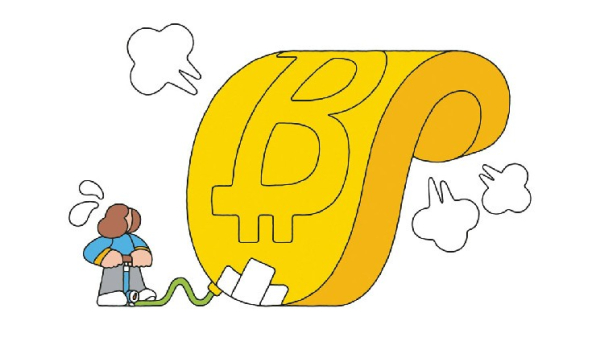Corporate Bitcoin reserves risk repeating the fate of the dot-com boom of the 2000s.

Companies with cryptocurrency reserves are repeating the dot-com crash of the 2000s, according to Ray Youssef, founder of peer-to-peer lending platform NoOnes. He believes investor psychology hasn't changed one iota over the past 25 years.
Remember the dot-com bubble burst in the early 2000s? The US stock market plunged by 80%. Yusuf believes the current craze for cryptocurrency-backed companies is a déjà vu of that era. In an interview with Cointelegraph, he stated that the same investor psychology that led to overinvestment in early internet companies during the dot-com crash hasn't disappeared, despite the presence of financial institutions in the cryptocurrency sector.
“Dot-coms were an innovative phenomenon in the developing IT market. Along with large companies with serious ideas and long-term strategies, the rush for investment capital also attracted enthusiasts, opportunists, and dreamers, because bold and futuristic visions of the future are easy to sell to the mass market,” Yusuf explained. He added, “Today, the global financial market is driven by the idea of cryptocurrency, decentralized finance, and Web3.”
Most will not survive.
Yusuf predicts a rather bleak picture: most companies with cryptocurrency reserves will fail and be forced to sell their assets. This, he believes, will set the stage for the next cryptocurrency bear market. However, a select few will survive and continue to buy cryptocurrencies at a significant discount.
Corporate Bitcoin holdings are dominating headlines this market cycle. Institutional investment is being touted as a sign that cryptocurrencies have grown from a niche phenomenon into a global asset class, vie for control by governments and corporations. Meanwhile, Yusuf predicts they will share the same fate as the dot-com boom.
How to Survive the Cryptocurrency Apocalypse
But not everything is hopeless. Companies with cryptocurrency reserves can mitigate the effects of a market downturn and even thrive if they practice responsible asset and risk management.
Here are a few tips for survival. First, reducing a company's debt burden significantly reduces the likelihood of bankruptcy. Corporations that issue new shares instead of corporate bonds have a better chance of surviving a downturn. Why? Because shareholders don't have the same legal rights as creditors.
If a company does decide to take on debt to finance cryptocurrency purchases, it's crucial to spread out the debt maturity. For example, if a company knows that Bitcoin typically trades in four-year cycles, it can structure its debt so that it matures in five years. This will avoid having to repay the loans when cryptocurrency prices are depressed.
Another piece of advice: companies should invest in cryptocurrencies with a limited supply or “blue-chip” digital assets that last for years and recover between cycles. However, it's best to avoid altcoins, which can lose up to 90% of their value between market cycles and sometimes don't recover at all.
Finally, companies with existing revenue-generating businesses are in a better position than pure treasury players. The latter have no revenue streams to use for cryptocurrency acquisitions and function as publicly traded acquisition vehicles, relying on external financing.
History teaches us that bubbles burst with remarkable regularity. Dot-coms, tulip mania, South Sea Company—the list goes on. Now, companies with cryptocurrency reserves may join that ranks. However, as history itself shows, after every crash, the market recovers, and the survivors become new giants. The only question is who will be among the lucky ones this time.
Source: cryptonews.net



